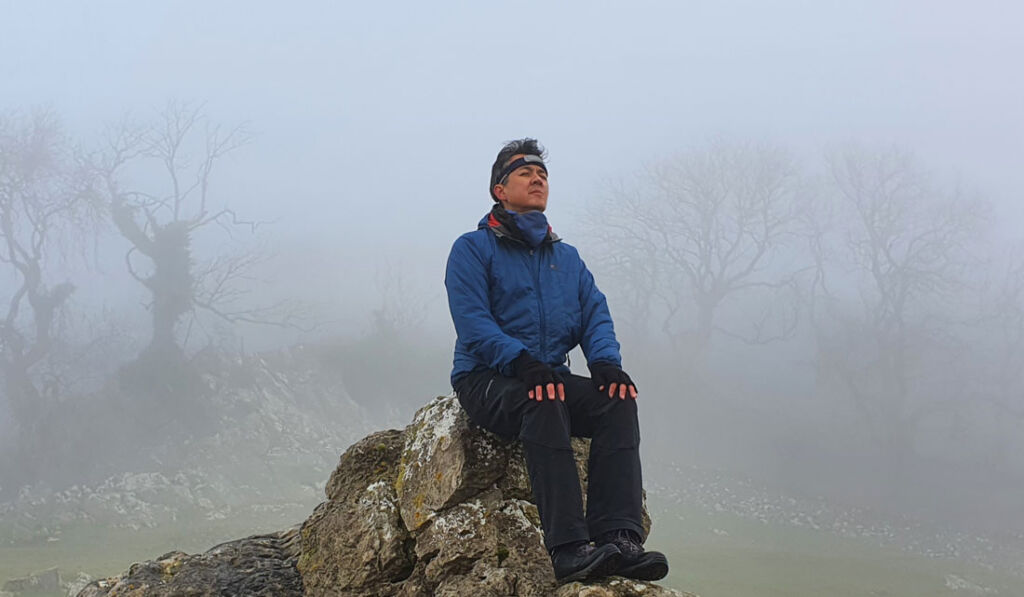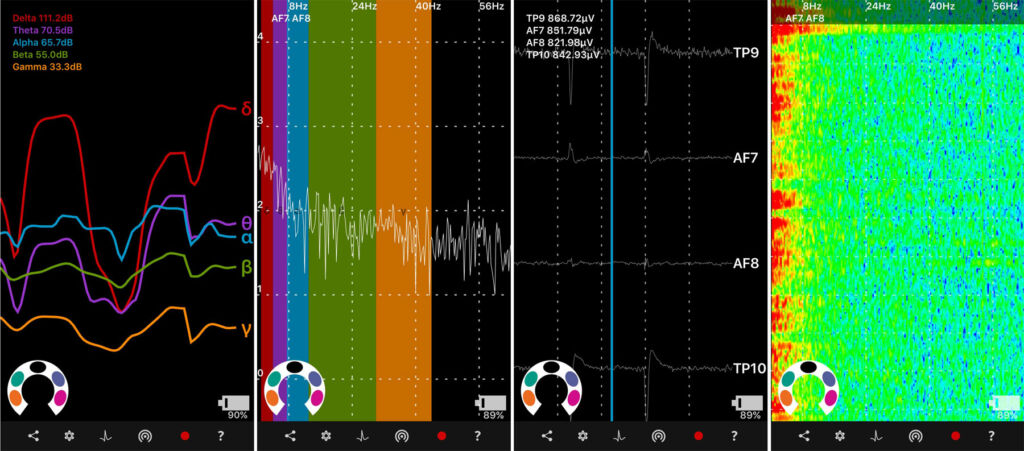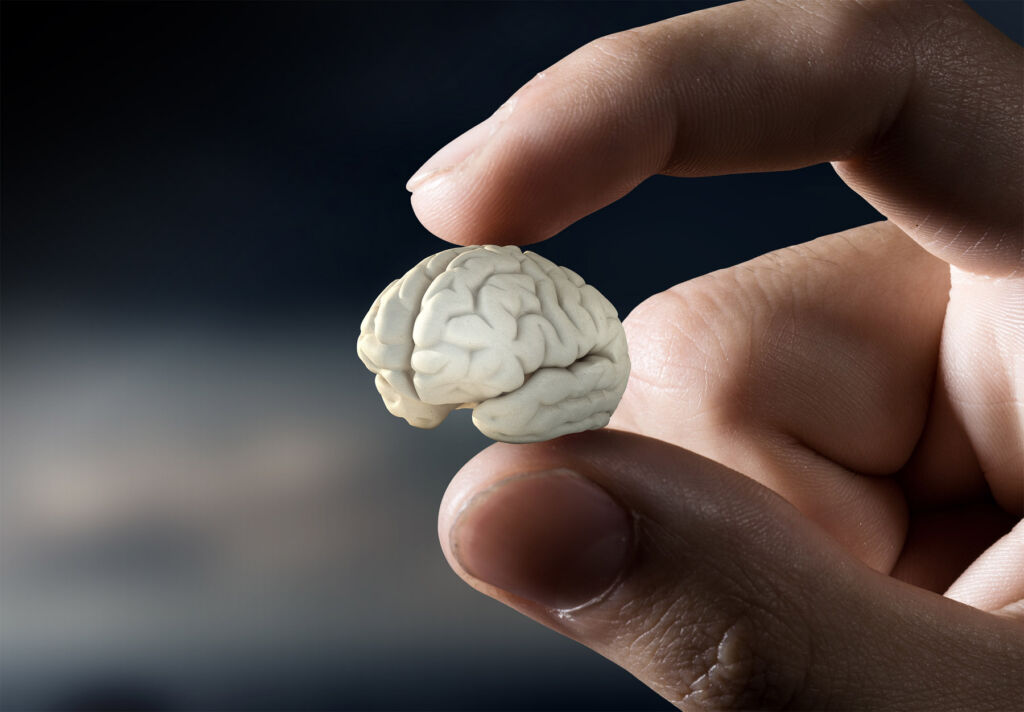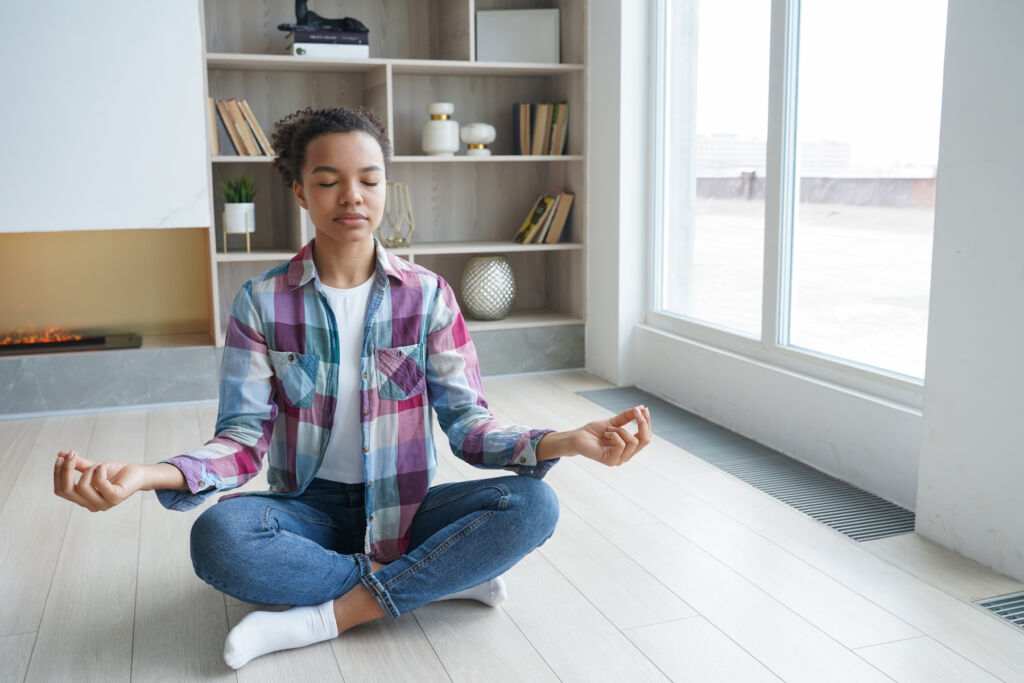
After countless meditation sessions and thousands of hours of relaxed bliss, I have often wondered if I would even recognise my most profound meditation and whether I was capable of experiencing more. Last week, I had my answer when I found myself in the deepest, darkest recess of my mind to date, and what followed surprised me.
Make no bones about it: daily life in this fast-paced world can be stressful. The constant media bombardment, desire for more, the ‘do-this-do-that’, people’s egos, and establishing a place in a physical and internet-based society are just some of the everyday things that cumulatively can negatively impact one’s mental health.
Fortunately, there is a free and easy-to-use tool available to all: meditation. This ancient skill has become invaluable for millions worldwide, and once learned, it can make even the most stressful times disappear, replacing them with creativity, clarity, and order.
I am what some would call an ‘experienced meditator’. Like countless others, I have read the stories of people who have taken themselves into parts unknown, even proclaiming they’ve felt like they’ve entered another dimension. I want to feel what they felt; however, whether this is truly possible remains in the mind and imagination of the individual, and physical proof of what is being experienced is nigh impossible to come by.
I have no hard and fast rules when it comes to my meditation. Over recent years, I have experienced different forms of Jhana, experimented with switching between hemispheres and found ways to boost individual waves.
The one thing that was missing was an experience that made me go, Wow! Something that would cause me to think, “Should I attempt to go there again?” I reached that place last week.
Living on the edge of a village in Lancashire next to open fields means I often benefit from total silence.
Last week, whilst alone in a room, only accompanied by the birdsong outside, I decided a meditation session was in order. So I settled down, popped my MUSE headset on, started the Mind Monitor app, and closed my eyes.

I am one who believes that there are no ‘hard and fast’ rules when it comes to meditation, and what is suitable for one isn’t always right for another. Each person needs to find their own path. My preferred technique is ‘no thought’, and it is loosely akin to Zen meditation.
To reach my preferred state, I clear my mind and relax myself. As I become more relaxed (while remaining fully conscious), I often feel like I am dropping down into a new level of relaxation; it is a pleasant feeling and noticeable. To regulate the depth, I have developed an in-built limiter that lets me know when ‘enough is enough’.
Last week, I removed my limiter and went to a place I had never been.

The best way I can describe what I experienced is floating in total darkness—no noise or even a feeling of time, just me, naked in blackness. If I had to find a word to describe this state, it would be ‘nothing’, and it seemed like I was there, in that state for quite a while—all the time conscious.
Following my meditation session, I felt super-relaxed, upbeat, and refreshed, ready to head out with my wife on our daily walk around the village.
Our walks last for one hour, and we use the time to chat and enjoy nature. Approximately halfway through our walk, I brought up the topic of a new electronic device I had been sent, which is designed to reduce anxiety, stress, insomnia, etc.
In my role, I am often sent through devices to try and write about; this medical device is something I had yet to try, and I was keen to discuss what I would be doing with it with my wife.
As you can imagine, I am pretty familiar with words, and I started to tell my wife how I would test it in conjunction with a meditation practice.
I said, “The device is designed to reduce stress and, and… that thing that… hmmm… when you panic too much. You know the word I mean.” She looked at me, a little confused. I added, “Blimey! I can’t think of the word; it’s when your brain races and your heart beats fast- you’ve felt it!”
For the next few minutes, I was racking my brain as we walked, not getting close to any useful word. I tried to continue our conversation, “Anyway, I want to attach it when meditating to take some brain wave readings.”
I suddenly stopped and said to her, “Meditating”, repeating the word in a slower, more deliberate manner.
After repeating it a few more times, I asked, “Is meditating a real word, or have I just made it up?” She could see that I wasn’t messing around. I kept apologising and said, “I have no idea where that word came from; it even sounds stupid saying it.”
A worried look came over her face, and she said, “You’re not kidding, are you?” I quickly changed the subject to the newly born lambs in the field and we continued walking.
Five minutes later, I blurted out, “Anxiety!” It was one of the words I was searching for, and fortunately, ‘meditating’ no longer sounded strange or made up; I was back to normal.
I am quite convinced that whatever place or state I put my mind in prior to the walk had a profound effect on my cognitive skills. As mentioned, I called the meditative state I entered prior to the walk ‘nothing’, but I should add ‘tranquillity’ to that.
A desire to improve oneself is engrained in a large percentage of the world’s population, including me. Meditation is one of the most accessible tools for helping to do that. When performed correctly, it can bring a multitude of scientifically proven benefits, which some believe extend to improving one’s personality, often called enlightenment or awakening.
I believe the many thousands of hours I have devoted to learning meditation have made me a better person, more loving with greater compassion and understanding, etc., and this is frequently mentioned by those who know me well.
Taking one’s mind to new, let me call them ‘undiscovered parts’, through meditation can be exciting, probably no different than pushing yourself further than ever before with physical exercise. However, as with anything to do with one’s body, things are best done in moderation, and what I experienced for the half-hour following my journey into parts unknown has made me think twice about pushing myself to enter the deepest, darkest recesses of my mind.
My advice to those learning meditation is to aim for a relaxed, quiet, stress-free mind, which will result in an ongoing refreshed, positive feeling throughout the day.
Although the lure of experiencing undiscovered spiritual plains/dimensions will always be there, you shouldn’t make it a goal. If you do experience something profound without effort, then it was meant to be. Unlike physical exercise, which often has a competitive element, trying to improve the mind through meditation shouldn’t.
Learning it can be a hugely beneficial journey/adventure which anyone can embark upon. I am quite confident in stating that once you start to experience its benefits, you’ll feel like you have been given a superpower.

![]()




You must be logged in to post a comment.